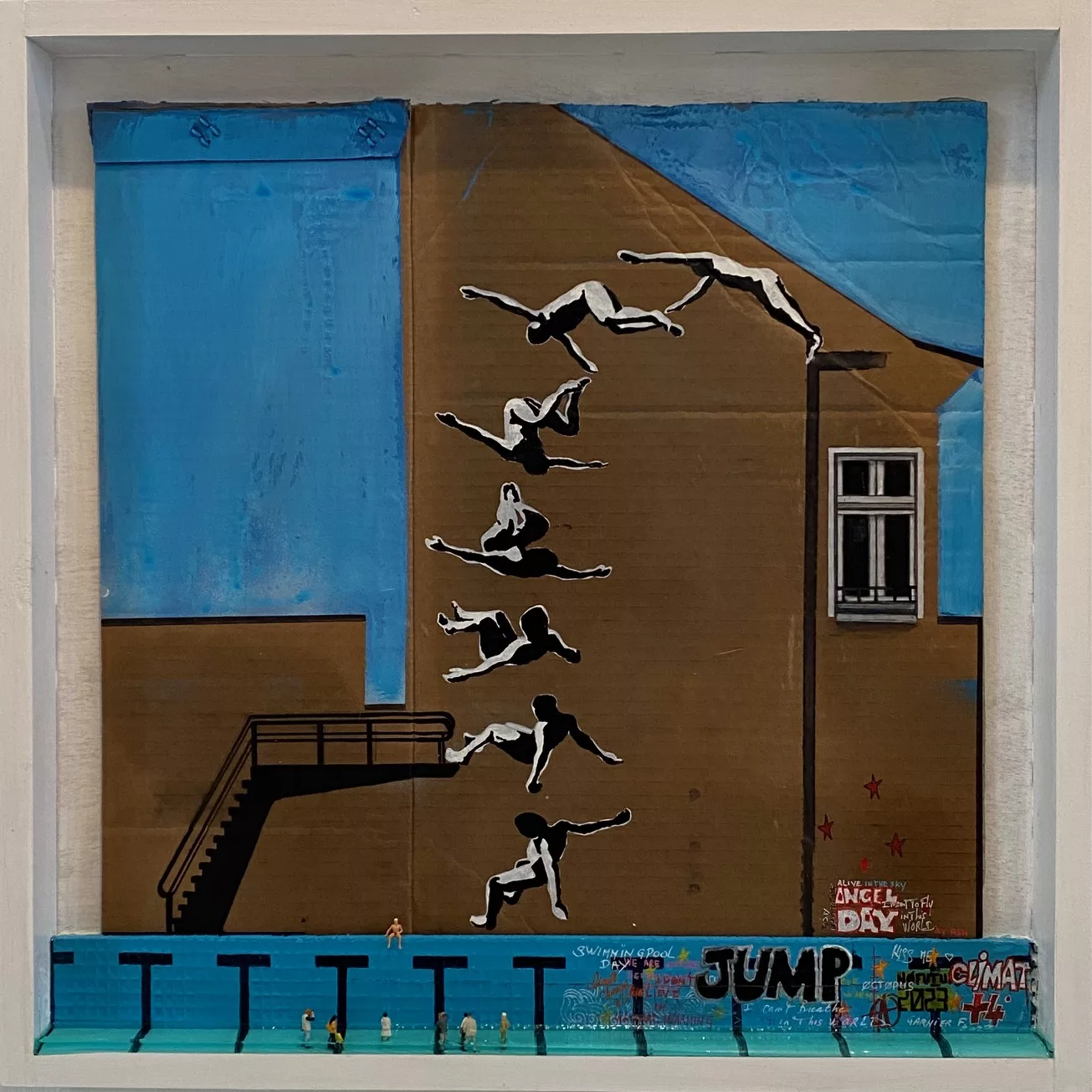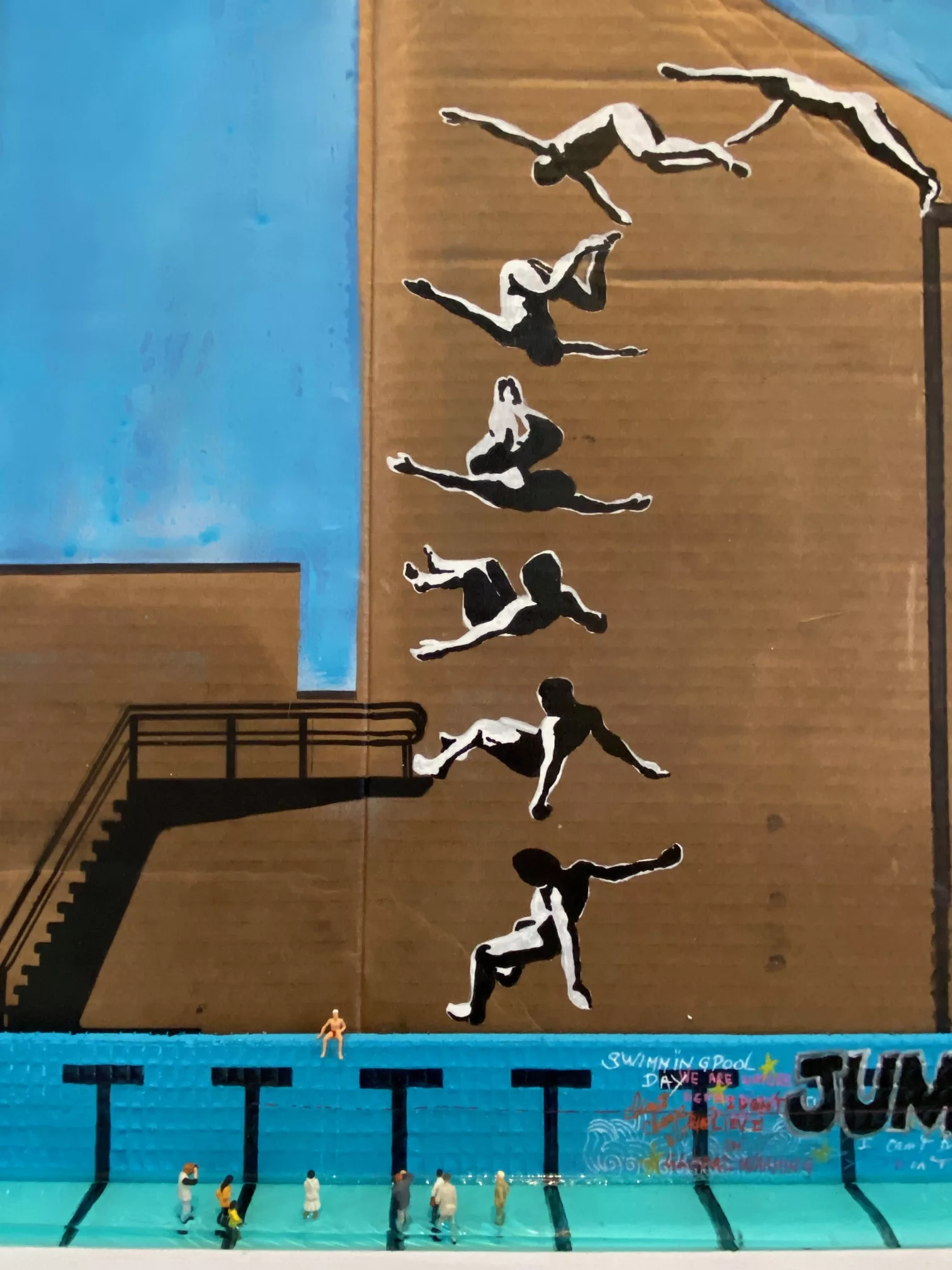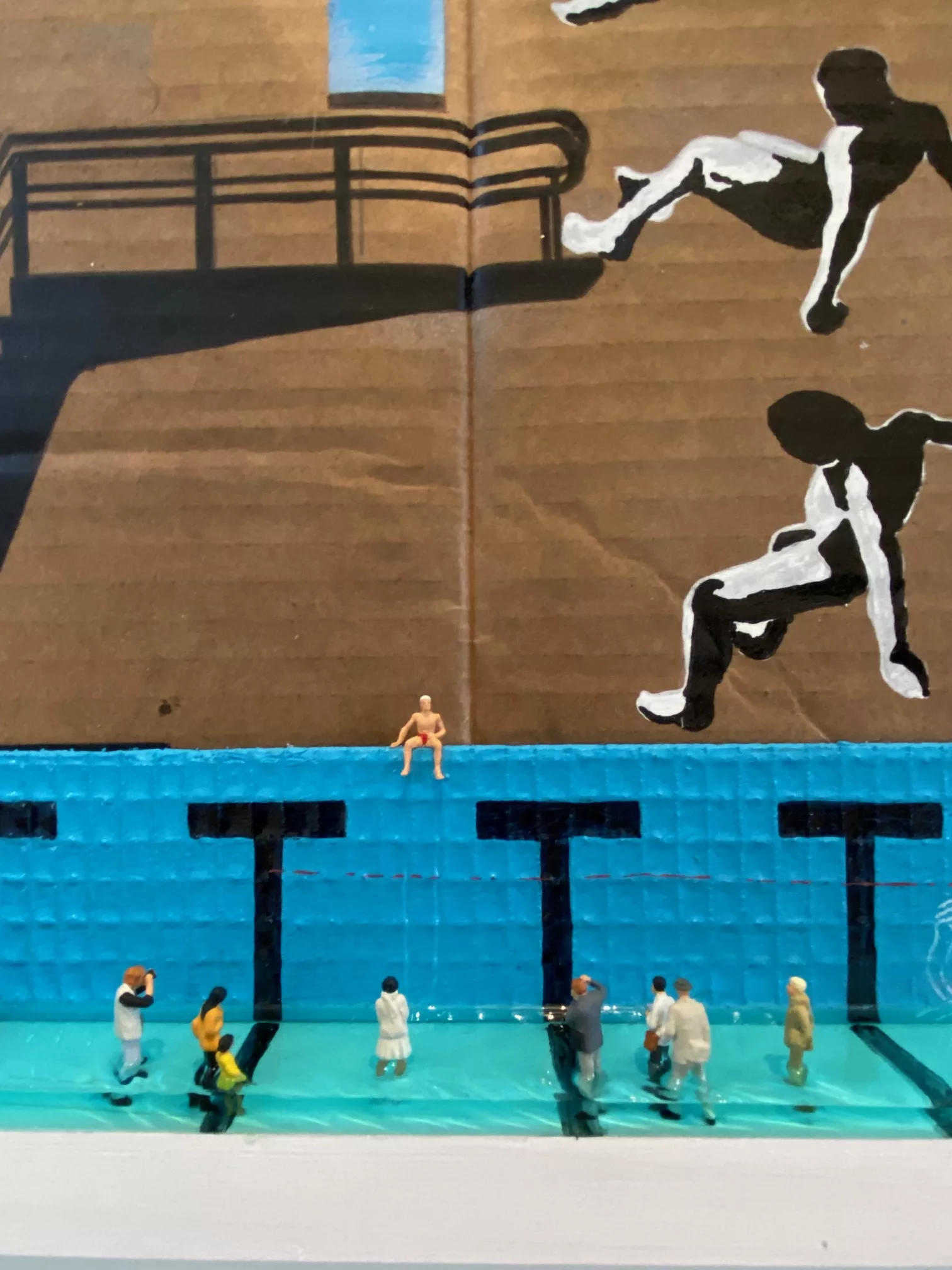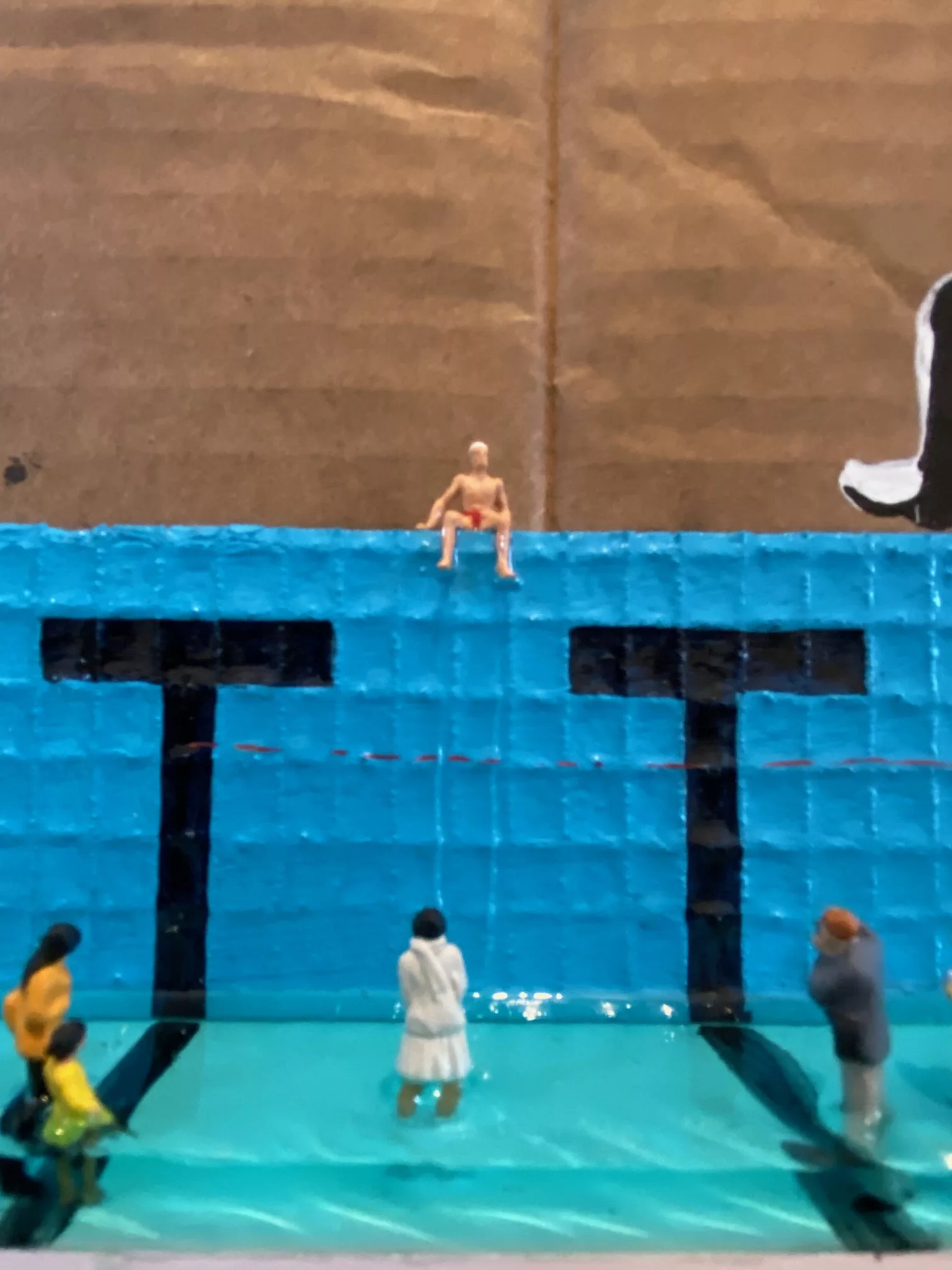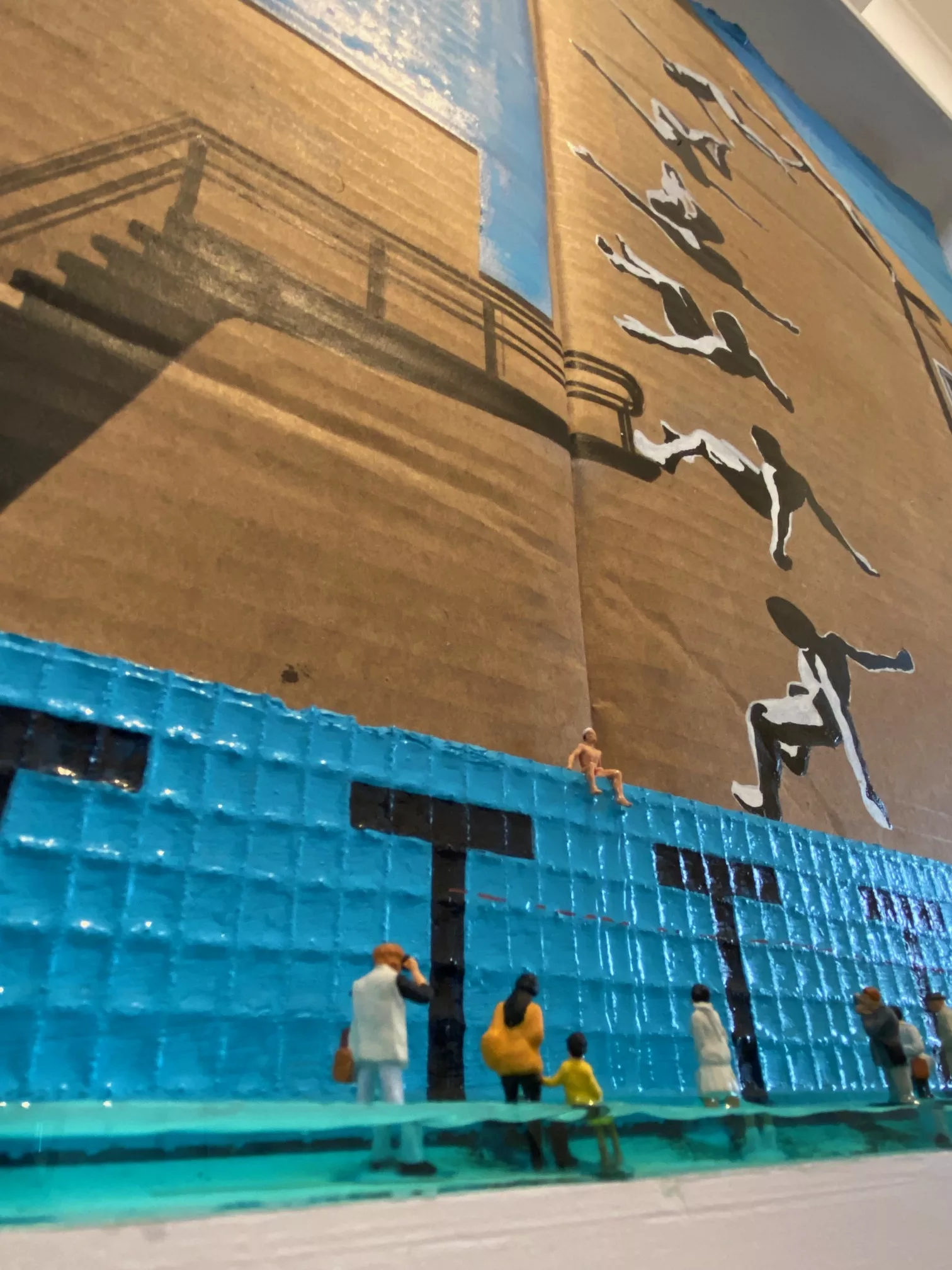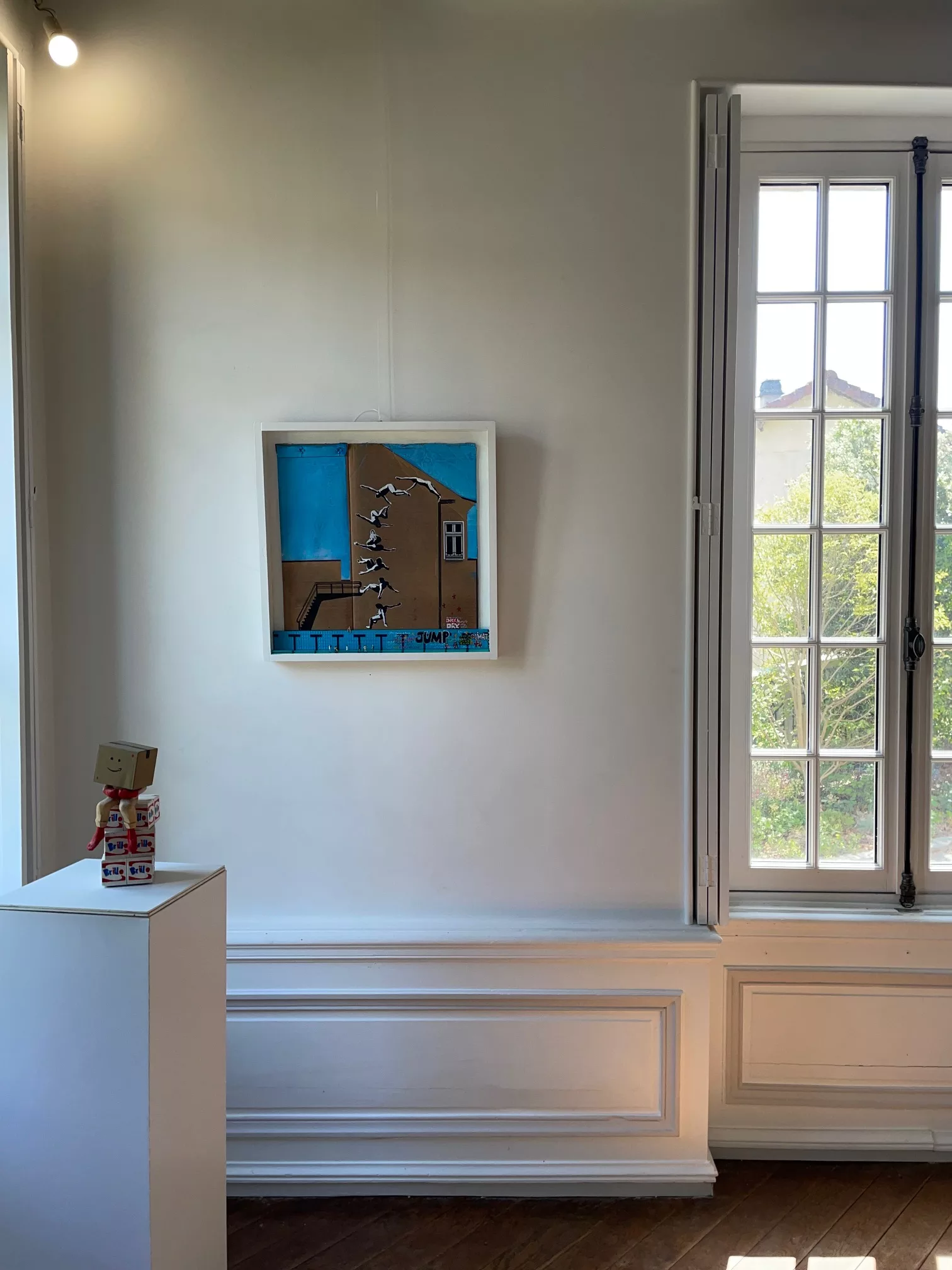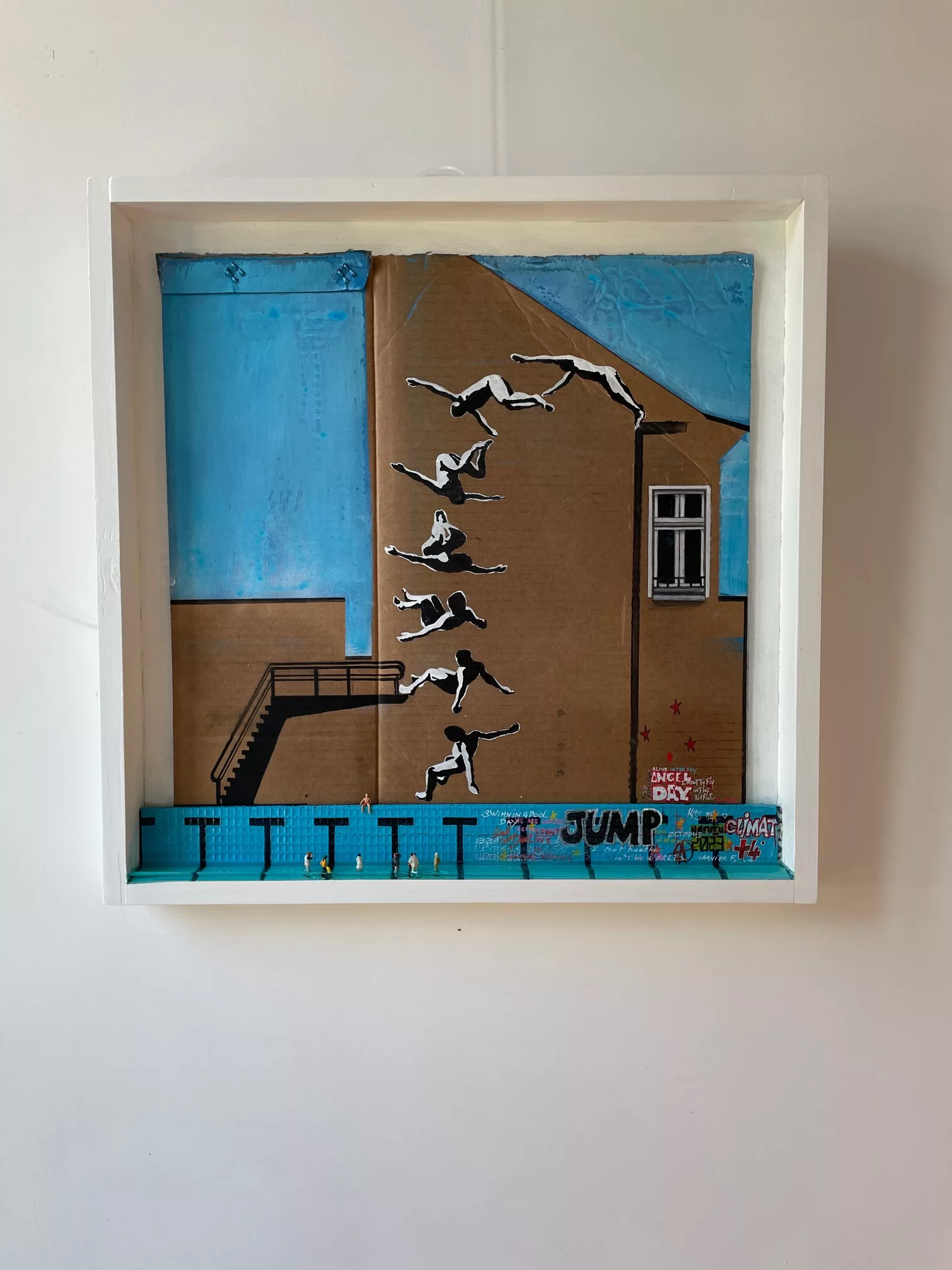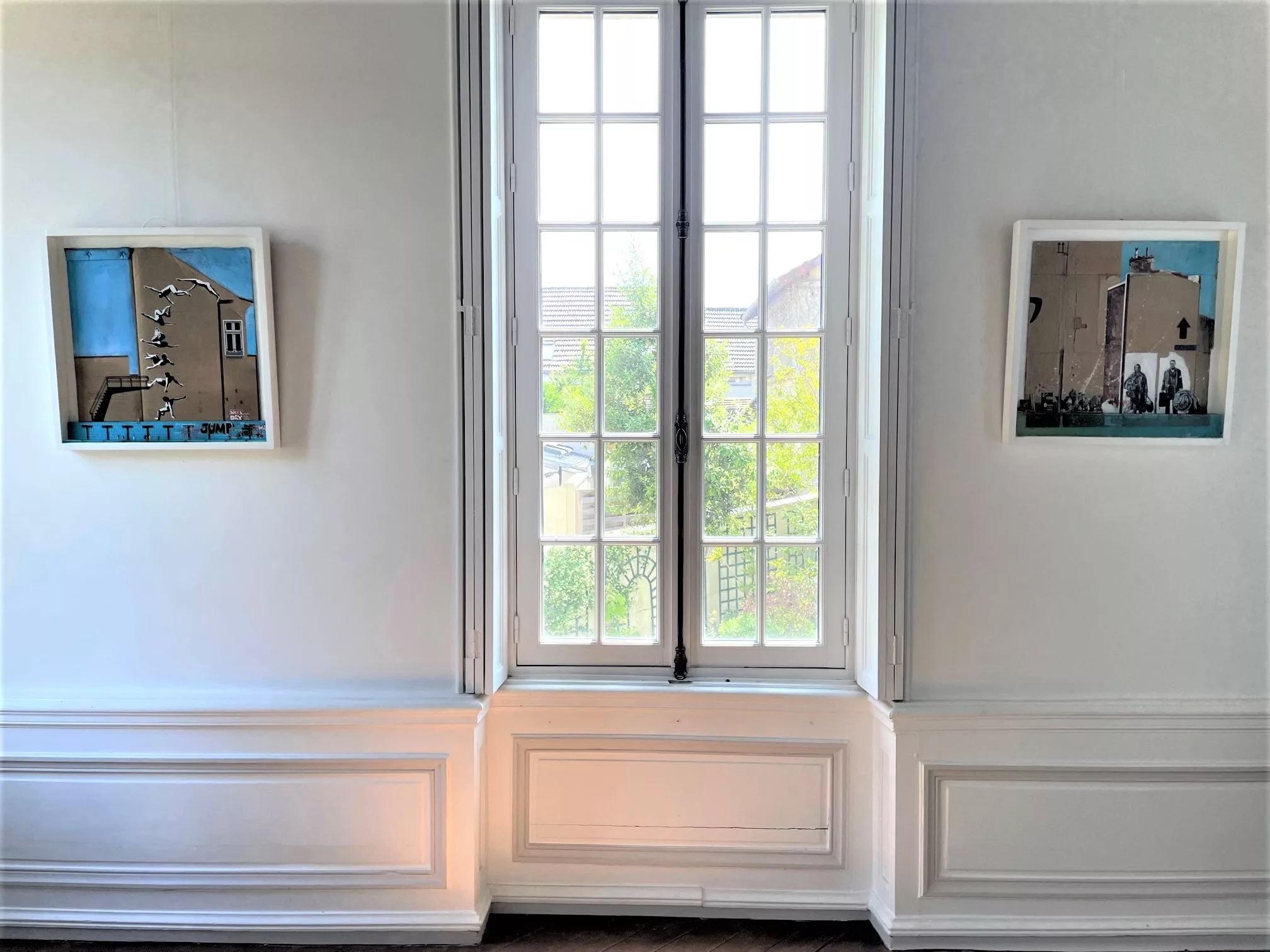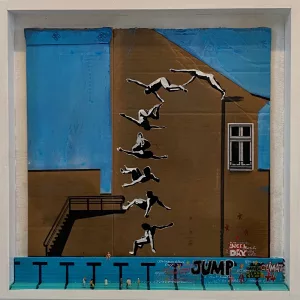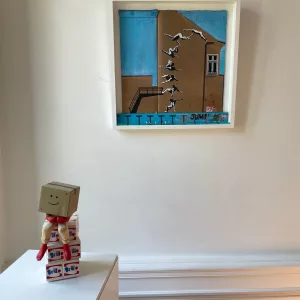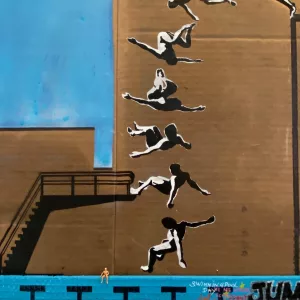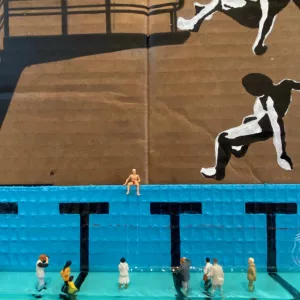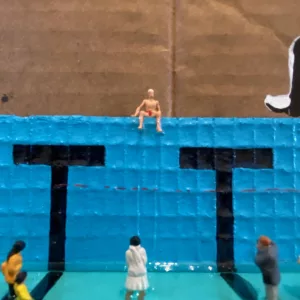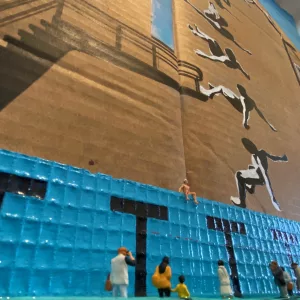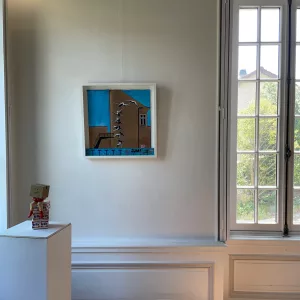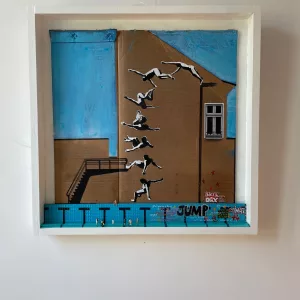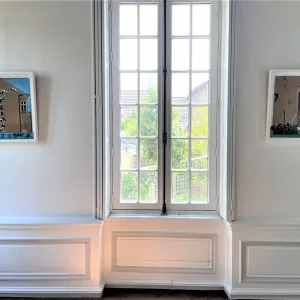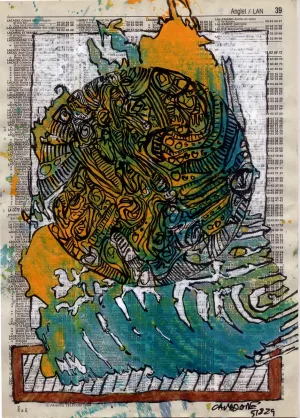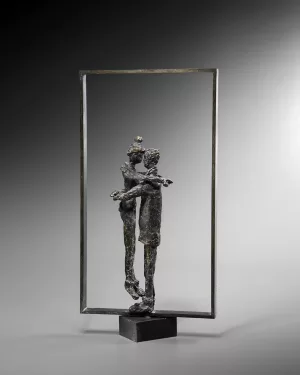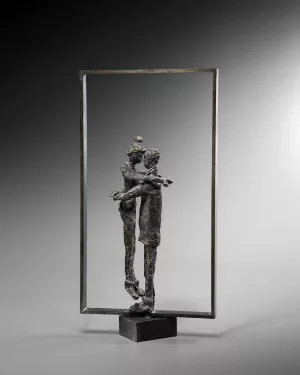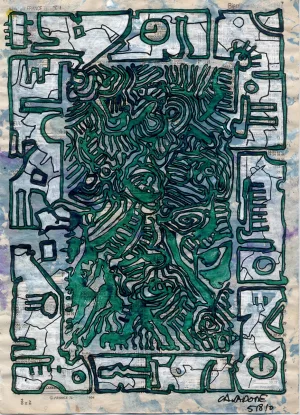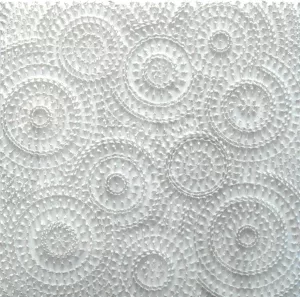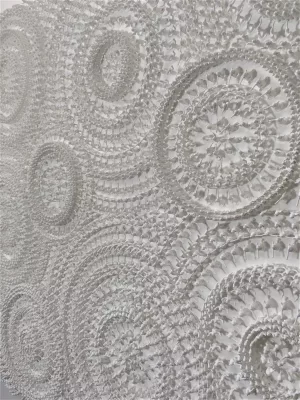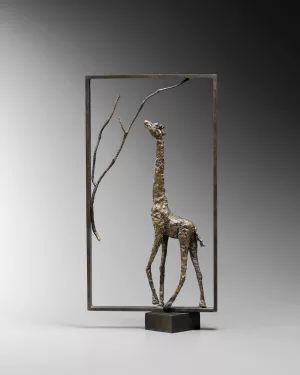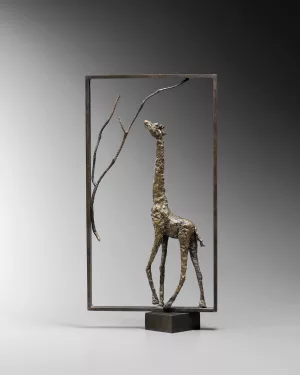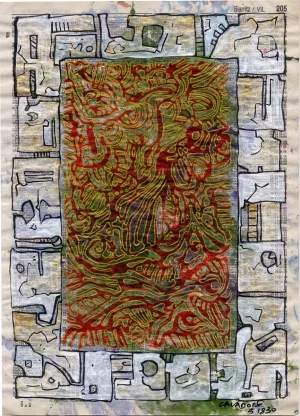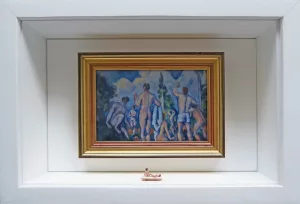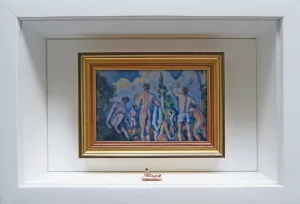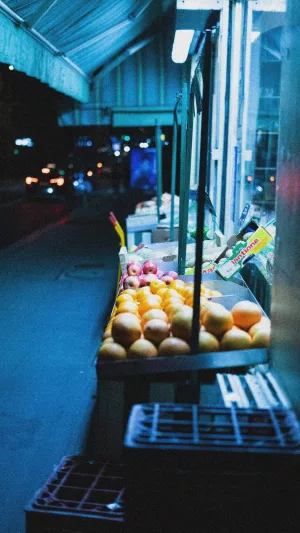Jump
Fred Garnier
Mixed media (stencil, spray, cardboard, wood, resin)
60cm x 60cm x 5cm
Unique piece
2200,00€
Delivery
The delivery time for this work is 7 to 10 days.
Good to know
We are at your disposal to answer any questions you may have about this work. you may have about this work. Do not hesitate to contact us by clicking here.
About the artist
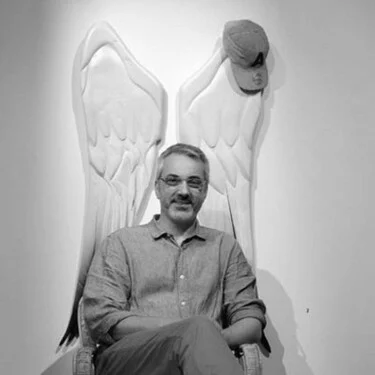
Fred Garnier
Revealed at the Salon de Montrouge in 2006, Frédéric Garnier was born in Troyes in 1970, where he now lives.
All his creations are really protean and put in scene our interrogations on the human existence. Its beginning and its end. Its meaning. What we commonly call "the After". Then that which survives us sees the day, takes place in the memories, the "traces" of life. His plastic reflection is built in installation works, in which the photo completes the sound and the video. The object is most often the starting point, it is exposed, destroyed, modified, to position the spectator in a human scale space.
Fred Garnier's plastic work draws its inspiration from the world of childhood, with its word games and hidden meanings, but also from our contemporary adult world and all its paradoxes.
The series "les façades" is a proposal that links these two worlds. The background to the current series tackles the issue of global warming, through the use of building facades, mostly existing (featuring works by Ernest Pignon Ernest, Jef Aérosol, Banksy, Space Invader etc.), on which scenes of encounters between miniature characters come to life. Their dialogue takes place in front of an urban art creation, meaningful, affordable and identifiable to all.
These buildings, these urban creations magnify buildings worn by time, immersed by the rising waters. A sort of survival space, a refuge for these figurines, toys of our contemporary society.
These scenes are at the same time childish, serious and pose more widely the question of our difficulty as adults to keep a child's soul where the world is beautiful and where everything is still possible.
The aim of this series is to recontextualize works of street art in the light of our climatic reality. Each piece is an "urban landscape", a snapshot of a moment in time, a street space that invites us to reflect on the rising waters. It's not a question of "copying" an existing work. The idea is to use this significant urban work as the basis for a dialogue with the miniature figures that echo it. Two worlds meet, exchange ideas in the hope of saving themselves.
Urban rooms are, by definition, "offered" to the world. They are destined to disappear, unlike museum pieces.
This series, "façades", freezes these works in time and space, in a miniaturized urban context, on the scale of Man in the World.
Each urban artist represented in this series is named on the pieces in a written trace and indicated on the back of the pieces.

